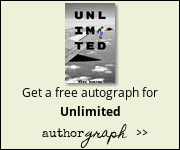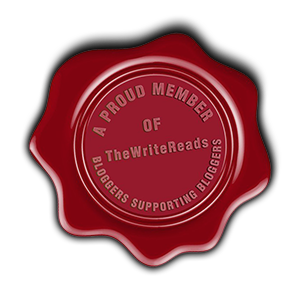
I’ve chosen to go with the label of ‘speculative fiction’ when it comes to explaining the stories I write. Almost all of my stories are different from each other, and almost none of them can be socketed neatly or cleanly into one of the main genres used to describe books these days.
“But why?” you ask. Let’s take a look at a couple of examples:
Unlimited is essentially a superhero story. What do you think of when you hear the word superhero, though? Probably the comic book superheroes we’re used to. Dramatic powers. Conflicts that destroy cities, worlds, or even universes. Costumes and secret identities. Flamboyant speeches and disparities of epic proportions. These are the things I think of when I hear the word superhero.
But the story of Daniel and his powers doesn’t fit. This is a story of a kid who finds out he has every super power. Anything he can imagine doing, he’s able to do it. But he’s the only one. This isn’t a world populated with heroes and villains. This is our world. Daniel doesn’t fly around in spandex saving people in trouble. He’s learning what he can and can’t do… all the while being completely selfish about it. He’s human (at least we think so).
Unlimited is a coming-of-age story packaged with science fiction elements. It’s my Catcher in the Rye or Huckleberry Finn if their angst and isolation was due to having unlimited power to do anything they wanted. Would I put Unlimited in the same genre? Not really. But I also wouldn’t place it directly in the superhero genre (even though, that’s where it’s sitting on Amazon). It’s floating in this strange spot where it can be part of many genres, yet it sits in its own corner.
Mal-adaptive was even harder to decide where to put it. I believe it’s in Post-apocalyptic Science Fiction and Urban Life, both of which only partly describe the story. Yes, it takes place in a city… but it’s a modern city that hasn’t been razed to the ground (yet). It deals with Armageddon, which is technically apocalyptic, but the ‘post’ part in the book doesn’t fit with the mental image of post-apocalyptic.
There are angels and demons… but they all use cell phones and technology. They also seem to be ensconced in a business model kind of
Mal-adaptive has elements of a spiritual nature. It was partly my way of dealing with my views on religion. It also deals with the paranormal, but I’m not putting it next to something like the Anita Blake series, or the Mortal Instruments series. It also has quite a bit of my humor thrown in for relief, but I’m also not calling it a comedy.
I now have two works in progress, Razing Hell and Trace of a Witch. The first deals with a professor of demonology who gets sent on errands for the school he works at because he has no students who signed up for his class. Nate gets help from a plucky local reporter and a crap-talking Jersey boy named Jimmy (btw, Jimmy is stuck in Nate’s head). While engaged in checking out strange occurrences in the small town of Hell, Montana, Nate and the gang stumble upon a cult intent on summoning an actual demon to destroy the world.
With that description alone, I could easily pop that sucker right into the Urban Paranormal category. Unfortunately, my story not only includes all that, but it also has a sneaky form of science fiction that sneaks in (and becomes part of the climax), and is CHOCK-FULL of humor. This is definitely a comedy. Now, where is the Comedy Science Fiction Urban Paranormal section of the bookstore? Oh, wait… there’s a bit of Mystery in there, too.
With Trace of a Witch, I think I won’t have too many problems with the genre. There are very few witches and warlocks in the world who can perform limited magic. There are two forms of magic that can be used, and most people will tend to one or the other. Enter Trace, who can’t seem to learn or perform magic… on purpose. But when threatened, her hands seem to be able to perform magic unheard of in this world… and others want access to it. All of this takes place in our time with cars and technology.
I know speculative fiction is a wide-ranging umbrella of genres, but I like the fact that it’s inclusive of my stories and welcomes the genre-bending nature of them. Do you like stories that tend to break genres, or do you tend to read specific ones? Do you feel that speculative fiction is TOO broad to get into (kind of a kitchen sink scenario)? Let me know in the comments.


Leave a Reply